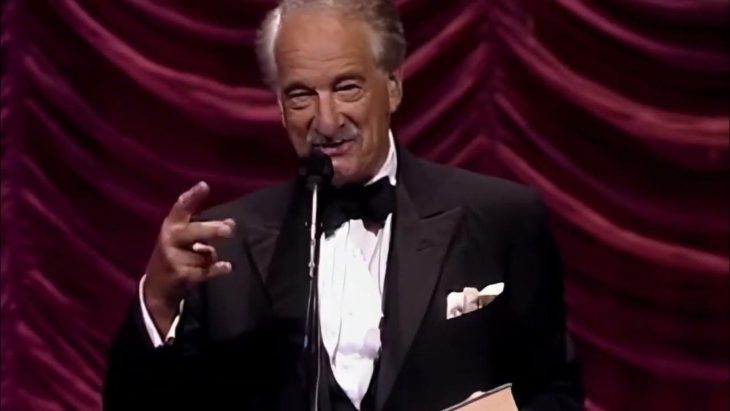
Word of the Day: Rebarbative
Today’s word of the day, courtesy of Words Coach (https://www.wordscoach.com/dictionary), is rebarbative. Rebarbative, pronounced / riˈbɑr bə tɪv /, is an adjective that means “causing annoyance, irritation, or aversion; repellent” (https://www.dictionary.com/browse/rebarbative). Dictionary.com goes on to say that it was “First recorded in 1890–95; from French, feminine of rébarbatif ‘disagreeable, repugnant,’ from Middle French rebarber ‘to oppose, confront,’ literally ‘to go beard to beard, head to head,’ equivalent to ré- re- + barbe ‘beard,’ from Latin barba ‘beard’ ( beard ( def. ) ) + -atif -ative” (ibid.).
Merriam-Webster says, “You may be surprised to learn that rebarbative traces back to the Latin word for ‘beard’—barba—making it a very distant relative of the English word beard. But there is some sense to the connection. After all, beards may not be repellent, but they can be prickly and scratchy! Another descendant of Latin barba is the English word barb, which can refer to a sharp projection (as found on barbed wire) or a biting critical remark, both of which can discourage others from getting too close” (https://www.merriam-webster.com/dictionary/rebarbative).
Etymonline.com says that it appeared in “1885, from French rébarbatif (14c.), from barbe ‘beard,’ from Latin barba (see barb (n.)). The usual theory is that it refers to the itchy, irritating quality of a beard” (https://www.etymonline.com/word/rebarbative). And just in case you’re curious, barber is “’one whose occupation is to shave the beard and cut and dress the hair,’ c. 1300, from Anglo-French barbour (attested as a surname from early 13c.), from Old French barbeor, barbieor (13c., Modern French barbier, which has a more restricted sense than the English word), from Vulgar Latin *barbatorem, from Latin barba ‘beard’ (see barb)” (https://www.etymonline.com/search?q=barber).
According to On This Day, on this date in 1951 the “’Victor Borge Show’ last airs on NBC-TV” (https://www.onthisday.com/events/june/30).
Victor Borge (1909-2000) was born Børge Rosenbaum in Copenhagen, Denmark (https://en.wikipedia.org/wiki/Victor_Borge). His parents were both musicians, and he began learning to play the piano at 2. He turned out to be pretty good. He gave a major recital at just 17 years old. But after a while he started adding jokes to his performances, turning a recital into an act. He toured throughout Europe, and in the 1930s, he started telling jokes that made fun of the Nazis in Germany. Borge was an Ashkenazi Jew (ibid.).
“When the German armed forces occupied Denmark on 9 April 1940, during World War II, Borge was playing a concert in neutral Sweden and decided to go to Finland. He traveled to America on the United States Army transport American Legion, the last neutral ship to make it out of Petsamo, Finland, and arrived 28 August 1940, with only $20 (about $449 today), with $3 going to the customs fee” (ibid.). So he learned English by watching movies and television, and he soon had a slot on various radio shows.
In 1943, Borge was given his own radio show, a 15-minute show. That became a 30-minute show on the NBC radio network in 1945 and then again in 1946, with backup by the Benny Goodman Orchestra. In 1951 he had two stints of a 5-minute version of the radio show. And in February of 1951, NBC started a 30-minute television show as a replacement for a show that had run the previous fall.
Perry Lafferty, the director of the show, said that “Borge ‘was better in guest spots than having his own show.’ Lafferty said years later that trying to convert Borge’s talented, but specialized, skills into a TV program ‘was the hardest thing in my career.’ Lawrence and Wilk managed to create new routines each week even though, as Lafferty said, ‘Borge fought everything we tried to do’” (https://en.wikipedia.org/wiki/The_Victor_Borge_Show).
I learned of Victor Borge when I was a kid. My father loved his work. My father was a devotee of classical music. He introduced me to Gilbert and Sullivan, and he took me to the Philadelphia Academy of Music to see his favorite orchestra under the baton of Eugene Ormandy. Whatever love I have of classical music I owe directly to my father.
But my favorite routine from Victor Borge was something he called “Phonetic Punctuation” (https://youtu.be/TIf3IfHCoiE).
Punctuation is a wonderful invention. Writing has not always employed punctuation: “Most Old English writers either did not really punctuate or only punctuated lightly. One of the more popular punctuation marks was the ‘Interpunct’ (“·”), which could be used for many kinds of pauses, including those sometimes represented in Modern English by commas, periods, colons, and semi-colons. Another method was to use a low, period-like punctuation to represent a short pause, a middle-height dot to represent a slightly longer pause, and a high dot to represent a long pause. However, this could sometimes be difficult to read – it was not always easy to distinguish between middle-height and high dots” (https://en.wikibooks.org/wiki/Old_English/Punctuation). But Contemporary English has a full system of punctuation marks with rules for the usage of such, and this punctuation can make otherwise unclear expressions clear.
For instance, there are jokes about punctuation that compare “It’s time to eat Grandma” with “It’s time to eat, Grandma,” followed by, “Punctuation—it saves lives.”
But there is no punctuation in spoken English, and that is what Borge tried to, humorously, correct. I guess he found the lack of spoken punctuation rebarbative.
Today’s image is Victor Borge doing Phonetic Punctuation (https://duckduckgo.com/?q=phonetic+punctuation+victor+borge&atb=v421-1&ia=images&iax=images&iai=https%3A%2F%2Fi.ytimg.com%2Fvi%2FNPc0aijY2o4%2Fmaxresdefault.jpg%3Fsqp%3D-oaymwEmCIAKENAF8quKqQMa8AEB-AH-CYAC0AWKAgwIABABGHIgRyhDMA8%3D%26rs%3DAOn4CLABxcZSdp6g878DN-kIekvzBAF3cg).